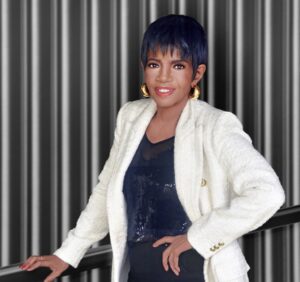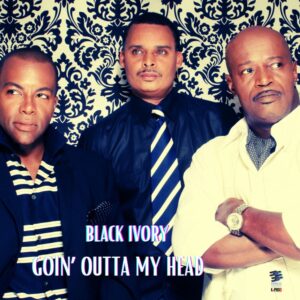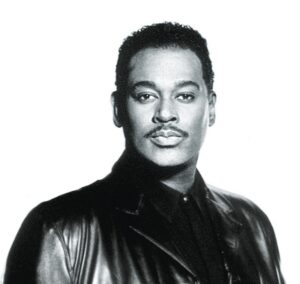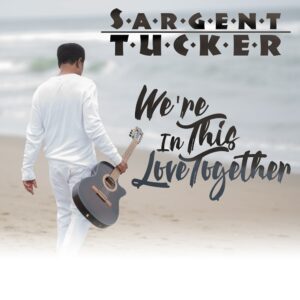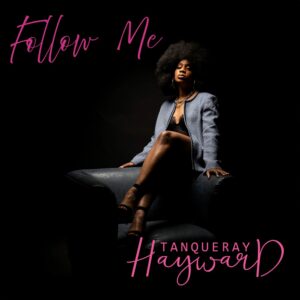 It began as a sanctuary, turned into a melting pot and now may be heading toward irrelevance. So goes the quarter century history of urban adult contemporary (UAC) radio, once the fastest growing format on radio. Even as the share of music bought by adults is increasing, the radio format originally formed for adults may soon be gasping for air, mostly from self-inflicted wounds.
It began as a sanctuary, turned into a melting pot and now may be heading toward irrelevance. So goes the quarter century history of urban adult contemporary (UAC) radio, once the fastest growing format on radio. Even as the share of music bought by adults is increasing, the radio format originally formed for adults may soon be gasping for air, mostly from self-inflicted wounds.
It shouldn’t be this way. As urban radio was slowly becoming synonymous with “hip hop radio,” UAC (called “the Mix” in several markets) developed as the alternative, a place that may have begun with Luther, Anita and a bunch of oldies but developed into a tremendously fertile ground for both established artists and independents who wanted to reach an adult audience. A decade ago, it was a place where listeners could catch everything from soul to gospel to smooth jazz in a single spot. It wasn’t unusual to hear new music from artists like Smokie Norful, Sade, Charlie Wilson, the Isley Brothers and Mary J. Blige, back to back.
While some broadcast stations labeled as UAC are still fighting to keep those broad playlists (a good example is Howard University’s WHUR), for the most part the wide palette that was UAC has changed significantly over the past decade. A virtually unregulated consolidation of stations has removed the local touch from UAC and has altered the corporate view of its purpose, resulting in  changes that have turned the once promising format into a predictable narrowcast. The “new” UAC strategy, using oldies to appeal to age 35+ listeners and new songs to appeal to younger adult listeners (age 25-35) who’ve graduated from urban hits radio, has hatched a schizophrenic mess. It is an odd combination of overplayed 70s and 80s hits (with such repetition they’ve forever ruined songs like “Sweet Love” and “A House Is Not A Home” for me) and down tempo hip-hop influenced new songs.
changes that have turned the once promising format into a predictable narrowcast. The “new” UAC strategy, using oldies to appeal to age 35+ listeners and new songs to appeal to younger adult listeners (age 25-35) who’ve graduated from urban hits radio, has hatched a schizophrenic mess. It is an odd combination of overplayed 70s and 80s hits (with such repetition they’ve forever ruined songs like “Sweet Love” and “A House Is Not A Home” for me) and down tempo hip-hop influenced new songs.
The format as it now exists relies on two fallacies, both of which underestimate the listeners: One is that older listeners only want to hear artists from the ‘70s and ‘80s. And not just that, they only want to listen to the 3 or 4 biggest hits of those artists. The other fallacy is that, in order to be palatable to younger adult listeners, any new music should be just a smoothed out version of urban hits radio. As one commentator put it, “Urban radio is where you hear Usher’s new hit. UAC is where you hear Usher’s new ballad.”
The rather insulting assumption that older audiences only want to hear the familiar has led to odd consequences for established artists: Longtime UAC favorites now find themselves unable to get airplay on their new music, even as their past hits are in heavy rotation. “That’s The Way of the World” may be played daily on your favorite UAC station, but you’re much less likely to hear Earth Wind & Fire’s new song “Guiding Lights.” Even Anita Baker, long the standard bearer of UAC, recognized the problem and introduced her new album with a cover of Tyrese’s “Lately,” essentially creating an instant “oldie” that fit the prejudices of UAC programming.
Things are even worse for younger artists whose natural sound may emanate from jazz, folk or soul. They are virtually forced to add hip hop elements (often teaming with hip hop artists) if they want a chance of airplay, and they’d better not feature electric guitar (a foundation of R&B bands for three decades), as that has become a prohibited instrument on new UAC songs. I would argue that the founding Holy Trinity of UAC, Anita Baker, Luther Vandross and Sade, wouldn’t get airplay if they were new artists today. So talented young singers like Vivian Green are issuing hip hop flavored singles that are, at best, awkward fits for their talents, but are obviously designed to meet the required UAC formula. The almost laughable consequence of these contortions is that Lil’ Wayne, through his guest appearances on several releases of other singers, has become one of the biggest artists on urban adult contemporary radio. Yes, Lil’ Wayne.
 At its peak in the ‘90s and early ‘00s, UAC was a format that spoke to a broad spectrum of music fans weary from the race to the bottom of urban hits radio, and it appealed through a fairly open funnel of new sounds. But, with some notable exceptions, it has lost its way. The market for adult music has never been stronger, yet ratings for UAC broadcast stations in many cities like my hometown of Detroit are dipping, victims of narrow thinking at the highest level. And, unless they recalibrate soon, these stations may lose adult audiences for good. Those listeners are showing they will go to new sources to find music, and their numbers continue to grow on Pandora, Spotify, satellite and internet radio, even as UAC – a format created for them – becomes less relevant to their lives.
At its peak in the ‘90s and early ‘00s, UAC was a format that spoke to a broad spectrum of music fans weary from the race to the bottom of urban hits radio, and it appealed through a fairly open funnel of new sounds. But, with some notable exceptions, it has lost its way. The market for adult music has never been stronger, yet ratings for UAC broadcast stations in many cities like my hometown of Detroit are dipping, victims of narrow thinking at the highest level. And, unless they recalibrate soon, these stations may lose adult audiences for good. Those listeners are showing they will go to new sources to find music, and their numbers continue to grow on Pandora, Spotify, satellite and internet radio, even as UAC – a format created for them – becomes less relevant to their lives.
So where does the format go from here? There is still an opportunity for UAC to win back its audiences, but first it must stop underestimating them. It begins with overhauling the playlists, digging deeper into the catalogs of classic artists (trust me, Earth Wind & Fire really did release songs after “Reasons”) and taking the less traveled approach of searching for fresh, varied new adult-oriented music (including those with soul, rock, jazz, gospel or world influences) rather than taking the “safe” route of securing more of the same watered down hip hop sounds that dominate UAC today. There are many talented, passionate people working in UAC radio who are hamstrung from doing what they know is right. For the life of the format, they need to be set free to put away the marketing consultant reports and become music people again. There is a treasure trove of new music that continues to come out from major label and independent adult-oriented artists like Martin Luther, Anthony David, Sy Smith, Gregory Porter, Kindred, Mama’s Gun, Avery*Sunshine, Bilal, Nadir, Eric Roberson and Angela Johnson – music that covers a much wider spectrum of styles than is currently in vogue on UAC radio. Ultimately, the answer is deceptively simple: what UAC needs to deliver is what radio, at its best, has always brought to listeners: a sense of place, connection and, most of all, discovery.
By Chris Rizik
.
